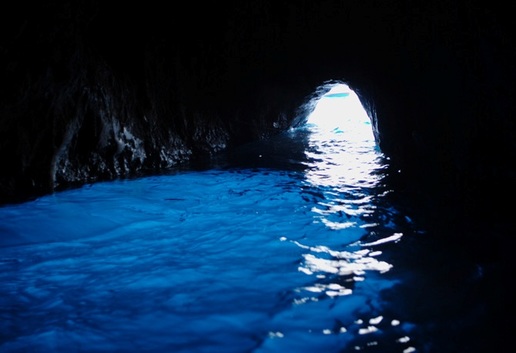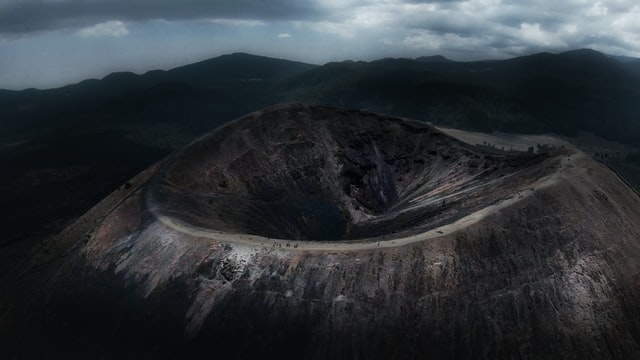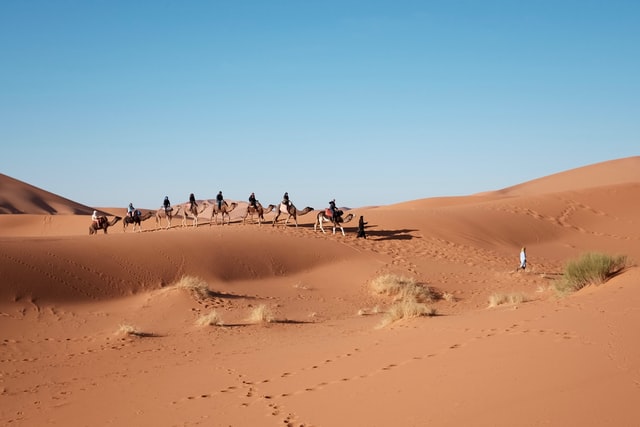The wonders of the world are natural, amazing, remarkable, extraordinary, rare places around the world you will love to see. If you have wondered, what are the seven natural wonders of the world?
They are places with astonishing features, from a mountain that grows yearly to a river that changes its colors and more.
In addition, in this article, you will get to know mind-blowing facts about these places. There are also interesting videos and pictures here. You will eventually love to travel around the world to see this places.
Before then, here are the 7 natural wonders of the world 2025 (Existing With Pictures), you need to
see, and they are,
- Northern light
- Caño Cristales
- Grand Canyon
- The Sahara Desert
- The blue Grotto Capri
- Paricutin
- Mount Everest
Let me take you around the world. Keep reading!
1. Northern light
Locations: Kirkjufell Mountain, Iceland. Fairbanks,
Alaska. Yellowknife, Canada. Tromsø,
Norway. Northern Sweden and Finland. Northern
Greenland. The southern region of New Zealand and Tasmania in Australia.
The northern light is a wonderful phenomenon; it is a beautiful, colorful, dancing natural light in the night sky. The northern light is formed as a result of solar wind traveling through space and run to our planet's magnetic field.
The solar wind is different from the sun rays we feel on our skin. Solar winds are streams of plasma (charged particles). The charged particles include protons, neutrons, and electrons from the upper part of the sun.
While sun rays are the different wavelengths of electromagnetic radiations from the sun. So when this solar wind passes through the earth's electromagnetic field, the field makes the wind travel around the earth by forcing the wind away towards the earth.
When the solar wind travels towards the earth after it was forced by the magnetic field, the solar wind strikes our planet's atmosphere.
Since the wind contains protons and electron, then they strike our planet atmosphere, energy are released. The energy that is released is in form of light. This brings about the dancing northern light we see which is one of the seven wonders in the world in 2025.
The different colors we see in the light depending on the particular element the solar wind interacts with. Interaction of the wind with oxygen in the atmosphere gives green and red light, while nitrogen makes blue light.
Most times, it is the green color we see more because they are the brightest color when we look at the northern light. Here is an example to help us understand clearly how this light is generated.
Let say you shake a bottle of fizzy drink vigorously. You will notice that bubbles are generated when you open the bottle. This is because there is the interaction of the drink with the air in the bottle. The interaction released energy in form of bubbles.
The relations of our planet's electromagnetic field with solar wind do occur at the middle of the earth, towards the southern and the northern poles. For this, there are southern and northern lights that are referred to as aurora Australis and aurora Borealis respectively.
You can see this light at dark night during the wintertime. As regards the southern area of Australia and New Zealand, the light can be
seen year-round. You can see them clearly outside the cities, where there is no
street light. This phenomenon happens between altitudes of 60 to 250 miles.
2. Caño Cristales
 |
| Image credit: awake.Travel |
Location: Serrania de la Macarena province of Meta,
Colombia.
Rivers of five colors Colombia; is a beautiful colorful river also refers to as a liquid rainbow. It is a fast-flowing river. The unique color of the river is the outcome of the biological phenomenon that happens from June to November.
 |
| Image credit: Mario Carvajal/Wikimedia Commons |
According to an environmental authority in Colombia, Macarenia clavigera (Podostemaceae) is a rare plant, which is responsible for the melted rainbow tones of the beautiful river. This brings this river to the list of the seven natural wonders of the world 2025.
Macarenia clavigera is endemic to the lines of rocky riverbed of Caño Cristales. Macarenia clavigera is a moss-like plant but it is an alga. In most months of the year, it is dark green in color.
But during the rainy season, that there is a higher volume of water in the river, when sunlight reaches the plant on the river's floor, the plant reflects 5 colors, purple, yellow, green, pinks, and fuchsias.
 |
| Image credit: Pedro Szekely/Wikimedia Commons |
Sunlight, temperature, and rainfall determine the
color and growth of Macarenia clavigera. The river is home to more than 40
species of reptiles, but there is no fish in it. The River is more than 20
meters wide and stretches for a distance of 100 kilometers.
3. Grand Canyon
Location: Northeastern Arizona, northwest of the city of
Flagstaff, United States.
Looking at the above picture, the place might not look so exciting, but it has stunned more than 6 million of its yearly visitors. Here is why. Grand Canyon is a gigantic beautiful valley that is 277 miles long on the surface of the earth. And it is 18 miles vast wide.
At the northern and southern rim of the canyon, you can see
clearly colorful layers of rock down to the Colorado River. It is also
possible to walk down to the river. The Grand Canyon is formed as a result of erosions
over a very long time by the Colorado River.
4. The Sahara Desert
Location: almost covering the northern part of Africa.
It is wonderful to see such a beautiful vast area with little to no vegetation. The soil lacks nutrients to support plant growth. It is one of the regions on earth with harsh weather. The area receives little rainfall. At night the temperature can be very cold that it can drop to -6 degrees.
Sahara means desert in the Arabic language. It is the world's largest and driest expanses of land spanning a vast total area of 8,600,000 square km (3,320,000 square miles).
It is approximately 4,800 km (3,000 miles) from the west to the east. From south to north, it covers between 800 to 1200 miles. It is bordered by the Mediterranean Sea, Sahel, red sea, and Atlas Mountain.
The topographical features of the desert include large oasis depression, sand dunes, sand seas, abrupt mountains, rock-strewn plateaus, and gravel-covered plains. The highest sand dune in Sahara is 450 m tall which is one of the highest on earth.
More On Natural Wonders
5. The Blue Grotto Capri
 |
| Image credit: Frédéric de Goldschmidt |
Location: Grotto, Capri, Italy
The above picture has not been edited, it is a natural sea cave, and it is the blue Grotto Capri. It is also referred to as Grotta Azzurra. It is 25 meters wide and 60 meters long. The color of the water is a bright azure color which is the effect of the sunlight reflection that enters the cave through the cave's mouth.
The river reflects blue with the sparks of silver color. The silver reflection sparkling on the surface of the blue river is a result of small bubbles on the surfaces of objects under the water. This is amazing and this brings it among the wonders of the world in 2025.
If you want to visit the place, the best time the blue color
reflects very well is between 12 and 2 in the afternoon. You can get there through a canoe, but
visitors are not allowed to swim in it.
6. Paricutin
 |
| Paricutin |
Location: volcano, western Michoacán state, west-central
Mexico.
 |
| Paricutin top |
It is also called Volcan de Paricutin. It is one of the recent volcanoes, it happened on February 20, 1943. After that, the eruption continues and it ends in 1952.
When the volcano erupts, its larva and fire destroyed and buried two villages as well as their hundreds of homes. It is one of the most powerful wonderful phenomenon in history but destructive.
 |
| Illustration of Paricutin ashes and smoke on February 20, 1943. |
The two villages are San Juan Parangaricutiro and Paricutin Mexican villages. There are 7000 people that live there and they suddenly leave their home forever to the volcano. Some days before the volcano erupts; the villagers heard a rumbling sound and vigorous ground shake.
 |
| Illustration of the eruption of Paricutin |
When the volcano erupts it travels at the speed of 60 meters/minutes (196 feet/minutes). The larva is very hot that its temperature is 1,070°C (1,958°F). As the smoke gushes out of the volcano, so also smoke and ashes, the ashes reach 8km in the air.
 |
| Illustration of the flow of Paricutin larva that eventually cool off to basalt |
And then the ashes fell on the streets of these villages. It certainly one of the 7 natural wonders of the world with its power.
Today, there are basalts which are hardened rocks that form from the hot
larva that eventually cool off. The volcano's height is now 3,170 m (10, 400
feet). Presently, the volcano is inactive.
Related article
The Top 10 World's Most Dangerous Places (Deadliest Beautiful Places)
7. Mount Everest
Location: border of Nepal and Tibet, China
The mountain got its name from Sir George Everest in 1865; he was the leader of his surveying team then. He was the one that recognized Mount Everest as the tallest mountain in the world.
In reality, Mount Everest is not the tallest mountain in the world, but it is the world's highest mountain by peak or highest mountain above sea level. It has an incredible 8,848m (29,031ft) height as the measure in 2020. Its summit is at the border of Nepal and Tibet (China).
You may think, what is a wonderful phenomenon about Mount Everest?
The mountain amazingly continues to grow; it is an ever-growing mountain. Every year, it grows with an increase of 4millimeters (that is 16 inches per century) in height. This happens because the tectonic plates continue to shift thereby pushing the Himalayas up.
Without a question, it is among the Seven Wonders of the World in 2024. At the top of the mountain, there are no living things there. To summit Mount Everest, it takes about 39 to 40 days. It takes many days because the body needs to adjust to the extreme altitude. It is one of the places on earth with harsh weather.
To adjust to the extreme effects of the altitude, climbers usually take bottled oxygen along. Climbers are also encouraged to wear goggles and warm clothes to protect themselves from frostbite and blindness.
A helicopter cannot fly to the Everest summit; this is because the highest altitude helicopter can fly is 5000m and Mount Everest summit is close to 9000m. But airplanes can fly over.
The fastest person to the summit takes just 10 hours 56 minutes; it is the fastest ever recorded. In history, just 4,000 people have successfully climbed the mountain.
About 300 people have climbed the
mountains and never return home. Their bodies are used as landmarks. Climbing
the mountain does not worth risking your life. However, you can behold the
beauty and the wonders of the mountain from distance.
Over to you, which one among the places do you find the most
mind-blowing that is among the 7 natural wonders of the world in 2025? Let us know in the
comment section (Post a comment). Please subscribe to our mailing list (we do not spam) and
share this article. Thanks for reading :)










Post a Comment